Here at VACCA, Anti-Poverty Week is a time to look at the effects that poverty has on children and those that care for them. Unfortunately, over 50% of VACCA's Kinship Carers and by extension, the children in their care, live below the poverty line. This can place the children's emotional and physical wellbeing at risk, as well as them potentially experiencing a disconnection from culture and community.
We spoke to Leticia, a Team Leader in our Kinship Care team, about the advantages of Kinship Care and the disruption that poverty can cause for our Carers.
How does kinship care differ from foster care and what advantages does one have over the other?
Kinship care is care provided by relatives or a member of a child's social network, occurring when a child cannot live with their parents. Kinship carers can include relatives or someone the child already knows. This can also be a cultural or community connection. Kinship care is only one option amongst various alternative arrangements within the out-of-home-care system for children and young people who are unable to live with their parents.
A child placed with family or with a connection to family is the preferred option, this ensures a child remains connected to their family and culture and therefore provides a sense of belonging and allowing for a strong sense of cultural identity.
How can poverty affect kinship carers more so than other carers?
Kinship care giving can affect the carers life in a myriad of ways. Kinship carer responsibilities can increase and change as the child/young persons needs increase, which can result in additional strain on the caregivers. Kinship carers can also experience extreme financial difficulties due to the immediate increase in household expenditures as a result of the costs associated with caring, this can include ongoing medical expenses, set-up household expenses, and general day-to-day requirements.
Many kinship carers may have to sacrifice employment due to the demands associated with the children/young people in their care, and some even report using their retirement savings to help with the added expenses of kinship care.
Do Indigenous kinship carers receive adequate support, if not, how can they be better supported?
Indigenous Kinship carers report the need for having increased support for various factors associated with their role as kinship carers. Yes, additional support is offered to Indigenous carers by VACCA. However, more support in relation to culturally appropriate training, courses would be beneficial for Indigenous carers and professionals involved with Indigenous communities and families.
Further training for professionals working with Indigenous families and community to assist with; culturally specific customs, such as communication styles, parenting practices, physical environment, community relationships and household composition. Failing to address the needs of Indigenous kinship carers, essentially results in neglect of the needs of children and young people placed in kinship care, therefore contradicts the framework: a child-focused approach, and serves to further subordinate children/young people in care, who already are impacted in many ways and suffer extreme disadvantage in their lives.
How does VACCA support Kinship carers?
VACCA's Kinship Program provides placement support and case management, support with information and advice to Indigenous and non-Indigenous kinship carers and permanent carers. We support kinship care families with cultural connection support, group support and activities.
Other practical support is provided with parenting and behaviour management, access to respite and childcare services, and advice about services relevant to the child's needs.


